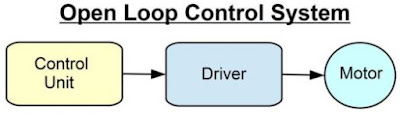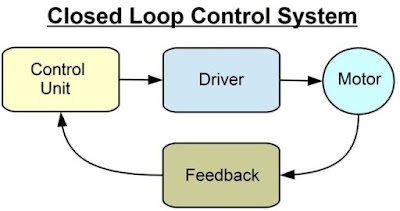What is Control System?
A control system is a group of mechanical or electronic devices that regulate alternative devices or systems using control loops. Typically, control systems are computerized.Control systems are a central a part of the business and automation. The kinds of control loops that regulate these processes represent industrial management systems (ICS) like superior management and knowledge acquisition (SCADA) and distributed management systems (DCS).
Uses of Control systems are won’t enhance production, potency, and safety in several areas, including:
- Agriculture
- Chemical plants
- Pulp and paper mills
- Quality management
- Boiler controls and powerhouse
- Nuclear power plants
- Environmental management
- Water treatment plants
There are two types of control system:
1. Open loop control system: Its operation is incredibly easy, once a signal directs the control component to response, an output is going to be made. Samples of the open loop control systems include laundry machines, light-weight switches, gas ovens, etc.
A washing machine is an example of an open loop system. The input and output of an open loop system area unit unrelated. An example is that the operation of a washing machine doesn't rely on the cleanness of the garments, however instead on this time. Each the structure and therefore the control method of an open loop system area unit are natural. However, the results of the output depend on whether the signal is suitable or not.
2. Closed loop control system: Sometimes, we tend to could use the output of the system to regulate the input. This can be referred to as feedback. Feedback could be a unique feature of a closed-loop system. A closed-loop system compares the output with the expected result or commands standing; then it takes appropriate management actions to regulate the input. Therefore, a closed-loop system is usually equipped with a sensing element, that is used to observe the output and compared it with the expected output.
2. Closed loop control system: Sometimes, we tend to could use the output of the system to regulate the input. This can be referred to as feedback. Feedback could be a unique feature of a closed-loop system. A closed-loop system compares the output with the expected result or commands standing; then it takes appropriate management actions to regulate the input. Therefore, a closed-loop system is usually equipped with a sensing element, that is used to observe the output and compared it with the expected output.
One advantage of using the closed-loop system is that it will modify its output mechanically by feeding the signal back to the input. Once the load changes, the error signals generated by the system can adjust the output. However, closed-loop system management systems square measure typically a lot of complicated and so dearer to form.
Classification of Control System:
Some popular Classifications of Control System are as Follow:
1. The equation of research and style, as Linear & Non-linear system.
2. the sort of the signal, as Time variable, Time-variant, Continuous information, distinct information systems, etc.
3. the kind of system parts, as Electro-Mechanical, Hydraulic, etc.,
4. the most purpose, as a Position management system.
Linear and Non-Linear systems: A control system is linear if the principle of superposition applies to it. In actual track most of the systems area unit non-linear as a result of the saturation, friction, dead zone, etc. Most of the physical systems area unit non-linear to a certain extent.
Time varied & Time-Invariant System: whereas operative an effect system. If the parameters area unit unaffected by the time, then the system is named Time variant system. Most physical systems have parameters dynamic with time.
Discrete information systems: If the signal isn't unendingly varied with time however it's within the type of pulses. Then the system is named distinct information system.
Continuous information systems: If the obtained at a varied a part of the systems area unit varied unendingly with time, then the system is named continuous information management systems.
Adaptive management System: In some control system, specific parameters area unit either not constant or vary in an unknown manner. If the parameters variations are more significant or rapid, it may be desirable to design for the capability of continuously measuring them & changing the compensation, so that the system performance criteria can always be satisfied. This is called Adaptive control system.
Optimal Control system: optimum management system is obtained by minimizing and increasing the performance index. This index depends upon the physical network.
Single variable system: In the straightforward order there'll be one input & one output such system is named Single variable management system.
Multi-Variable system: In multivariable management system there'll be over one input & correspondingly additional output.








